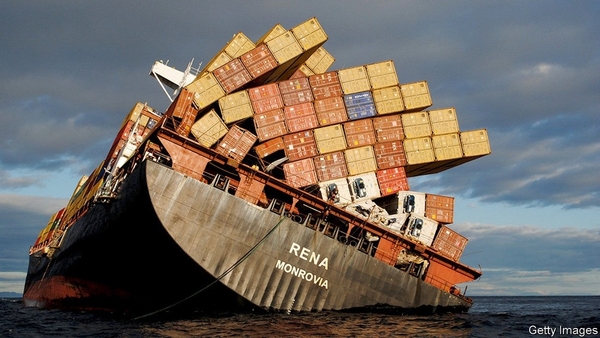Blog

10 October 2020, slowbalisation
Friday 9th October 2020
The economic story of the last 50 years is globalisation, capped by china joining the world trade organisation, and, for europe, the single market and euro. That took a knock with the 2008 financial crisis, a downward trend sustained by the deepening bifurcation of global trade between the usa and china, which has seen tariffs pop up and a deep-rooted tech war, most recently with huawei, wechat and tiktok. Links are still strong, with american investment in china continuing to increase and the chinese still reliant on american infrastructure like payment systems. Despite being championed by trump though, economic hostility to china is a bipartisan consensus in washington and covid has brought trade flows crashing. Brexit can also be seen in this context, as populist protectionism has increasingly moved from aberration to norm in global governments. With cross-border trade down at least 20% this year, 2020 looks like the end of the globalisation era. Everywhere the response to the pandemic has been viscerally national, defined by hard borders and different rules and internal regulations, even in supposedly unified economic zones like the european union and united states. The world seems totally unable to coalesce around single rules even for such inherently international sectors as aviation. The trend is intensifying, with supply chains being redefined, trade barriers raised and normal diplomacy on semi-permanent hold. The end of globalisation is also being hastened by the inability of international institutions like the wto to operate, in that case symptomatically and severely wounded by american vandalism. Covid has accelerated to warp speed the national rush of short-term interventions to mitigate the tidal wave of economic slowdown unseen since the last world war. Then, energy, transport and heavy industry, a much larger slice of the economy than now, were effectively nationalised for the war effort, making today’s subsidies look rather tame, even as they apply some brakes to every day’s news of more job losses, bankruptcies and sectoral meltdowns. To fund its actions, governments are borrowing on a massive scale: the uk just hit 2 trillion pounds. The hangover of the last crisis, the lowest interest rates on record, makes this borrowing easier, but it all needs paying back eventually, meaning higher taxes and the whole range of negative multipliers further lessening economic growth for maybe the next decade. Offshoring was already moving to near-shoring, but now long supply chains and just-in-time production are top of the risk register of every business. This is accentuated by synchronised demand shocks in areas like healthcare and pharmaceuticals. Not all is doom and gloom. Services, increasingly online, are about a third of global trade and rising, and are inherently more resilient, which is good news for global leaders the us and uk (though china is catching up quickly). And whatever washington wants, omelettes cannot be easily unscrambled. Europe might helpfully assert itself a little more in the bridge-building role it aspires to. 2021 at least cannot be worse than 2020, though of course that was the mantra in 2016…


